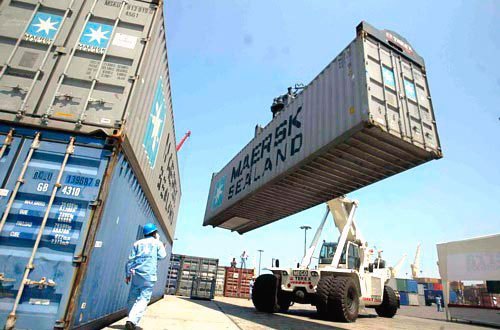The value of traditional exports from Nicaragua reached 3,940.8 million dollars in 2022, 9.8% more than a year earlier, the Association of Producers and Exporters of Nicaragua (Apen) reported on Tuesday.
The 3,940.8 million dollars in exports under the traditional regime (not including free zones) was 350.9 million dollars higher than those registered in 2021 (3,589.9 million dollars), said that union in a report.
Meanwhile, the volume of exports reached 2,107.16 million kilograms, a figure 3.65% higher than the 2,032.97 million kilograms of 2021, according to Apen figures.
In absolute terms it means an increase of 74.19 million kilograms, he highlighted.
The prices of Nicaragua’s main export products increased by an average of 5.9% in 2022, going from 1.77 per kilogram in 2021 to 1.87 per kilogram last year.
Related news: APEN awards the Exporter of the Year 2021 award
Apen highlighted that coffee exports increased by 197.23 million dollars last year compared to 2021, while raw gold increased by 55.39 million dollars.
“Regarding the decreases, the most striking was beef, which decreased its exports by 50.15 million dollars, as a result of the decrease of 17.36 million kilograms in the volume exported,” he noted.
In general, including exports from free zones, Nicaragua will exceed 7 billion dollars in exports in 2022, according to Apen forecasts.
That figure would represent 49.95% of Nicaragua’s Gross Domestic Product (GDP).
Nicaragua expects its GDP growth of between 3.5% to 4.5% in 2022.
Related news: Nicaragua in economic “lethargy”: ECLAC forecasts growth of just two percent
The Nicaraguan economy rose 10.3% in 2021, the first year of growth after three consecutive years of closing with a red balance, according to the Central Bank.
The Nicaraguan economy had contracted by an average of -3.03% per year in the 2018-2020 period.
GDP decreased by 2% in 2020, as a result of the covid-19 pandemic and the damage caused by hurricanes Eta and Iota, in November of that year, according to the monetary authority.
In 2019 it fell 3.7% and 3.4% in 2018, due to the sociopolitical crisis that has affected the country for 57 months, according to the issuer.















